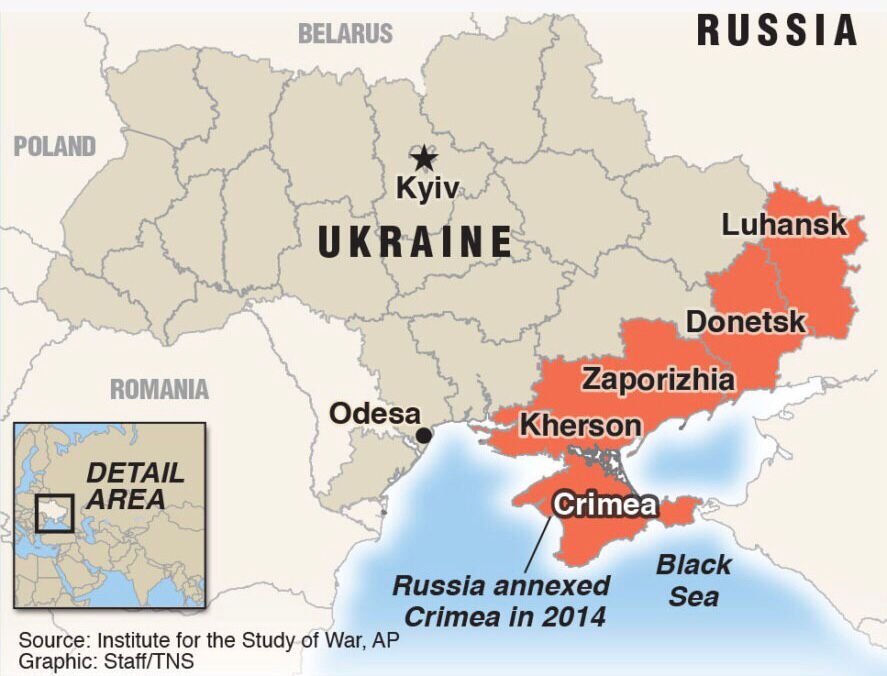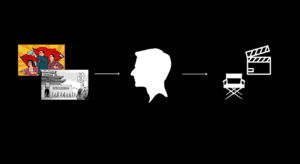Just a few weeks ago, in late October, Vladimir Putin declared martial law, a state of full military control, over four Ukrainian regions. Donetsk, Luhansk, Zaporizhia, and Kherson are more generally referred to as the pre-war “breakaway” regions because Russia asserted that they were already waging independence wars against Ukraine. This pre-existing dissent was used largely as a justification for Russia’s early invasion and is now used as an argument for their declaration of martial law within these regions.
The Kremlin (Russia’s head) argues that martial law was in effect in these areas prior to the Russian invasion and imposing it again aims to bring stability to the region. Stability is needed to “formalize this regime within the framework of Russian legislation.” (Vladimir Putin, 2022). In short, the acknowledgment of this law is the first step in the process of converting these regions permanently into the Russian nation.

It is, however, no coincidence that these regions are the four easternmost in Ukraine. Months ago, when bombs fell over Kyiv, a consolidation of power in these eastern regions was of little concern to Russia. Now, contrarily, as Russian forces, who at one point rallied outside of Ukraine’s capital, are forced back to the eastern border, now, Putin has a far greater interest in putting an iron grip over his last footholds in Ukraine.
Because of this, the Russian explanation—that a stable, pro-Russian zone was institutionalized politically—becomes far less believable than, say, the Ukrainian one.
Ukrainian officials argue that this shift to martial law is symbolic of a desperate Kremlin, one using every force in its power to solidify its last grip on Ukraine. While Putin speaks about the permanent institutionalization of Russian law, even Crimea, which has been controlled by Russia since 2014, falls under the threat of Ukrainian counterattacks.
Despite the Kremlin’s best efforts to portray the declaration of martial law as a power move, one meant to solidify success and not a last-ditch effort to prevent failure, the measure’s implications are those of a desperate Russia. The global power entered the war expecting an easy and decisive victory; however, the Russian army now faces mass casualties and the possibility of losing not only the war but Crimea as well. Now that Putin faces increasing pressure from the Russian oligarchs —a group whose finances have only been negatively affected by the war— as well as the Russian people, he will of course grow increasingly more desperate to prevent a total defeat. According to NBC News, “The order allows for unspecified economic mobilization in the regions, and it seemingly lays the groundwork to organize residents to support the military and security services.” This further supports the point that this move is not a Russian success but a measure hallmarking a failing attempt to maintain control of the eastern region of Ukraine at all costs.
In conclusion, my opinion is that this declaration means failure for Russia in the war. The war effort is looking for support in any place it can find, with any excuse it can find. As Putin and his antics grow increasingly unpopular across all classes of Russia, he grows desperate to avoid total defeat by whatever means he can.
Featured cover image:CEPA






